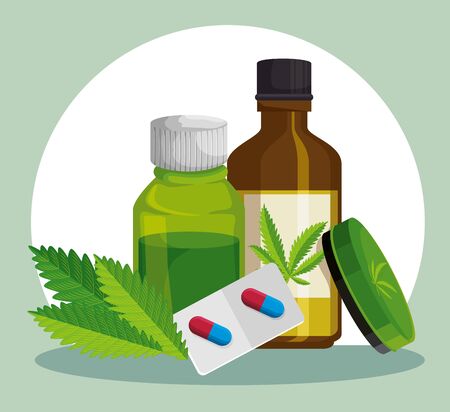1. Understanding the Role of Skin & Hair Supplements
Many people turn to skin and hair supplements hoping for stronger, shinier hair or smoother, clearer skin. But what’s really inside these supplements, and how do they work? Let’s take a closer look at the most common ingredients found in popular products and what they’re supposed to do for your beauty routine.
Key Ingredients and Their Benefits
Below is a breakdown of some of the most talked-about ingredients in skin and hair supplements, along with their intended benefits:
| Ingredient | Common Sources | How It Helps |
|---|---|---|
| Biotin (Vitamin B7) | Nuts, eggs, whole grains | Supports keratin production which may improve hair strength and reduce breakage |
| Collagen | Bovine or marine sources | May help improve skin elasticity and hydration; supports healthy hair structure |
| Zinc | Meat, shellfish, legumes | Plays a role in tissue repair and oil gland function; may help with acne control |
| Vitamin C | Citrus fruits, bell peppers | Boosts collagen synthesis; protects against oxidative stress that can age skin and damage hair follicles |
| Vitamin E | Nuts, seeds, spinach | A powerful antioxidant that helps protect skin cells and maintain scalp health |
| Hyaluronic Acid | Naturally found in the body | Keeps skin hydrated by retaining moisture; may improve skin plumpness over time |
| Omega-3 Fatty Acids | Fish oil, flaxseeds, walnuts | Promotes scalp health and reduces inflammation that can affect hair growth and skin clarity |
| Saw Palmetto (for men) | Saw palmetto berries | Thought to block DHT, a hormone linked to hair thinning in men |
| Silica (Silicon) | Bamboo extract, whole grains | Might support stronger hair strands and firmer skin texture through collagen support mechanisms |
| MSM (Methylsulfonylmethane) | Sulfur compound found in plants and animals | May contribute to stronger hair shafts and reduce skin inflammation due to its sulfur content used in collagen formation |
The Idea Behind Supplementing Beauty from Within
The concept of “beauty from within” is growing in popularity across the U.S., especially among those looking for more holistic approaches to skincare and wellness. Rather than relying solely on topical treatments like serums or creams, many are turning to ingestible beauty—vitamins and supplements designed to nourish your body internally so it can reflect externally.
A Complementary Approach—Not a Magic Fix
It’s important to remember that while supplements can offer additional support for your skin and hair health, they’re not quick fixes. Their effectiveness often depends on consistent use over time, your overall diet, lifestyle habits, genetics, and existing medical conditions. Think of them as one piece of the puzzle in your overall wellness routine.
The Bottom Line So Far…
If youre considering adding a supplement to your daily regimen for better skin or stronger hair, understanding what youre taking—and why—is key. The ingredients listed above are some of the most commonly researched in the beauty supplement world. In upcoming sections, we’ll dive deeper into whether these ingredients live up to the hype when tested by science.
2. The Science Behind Key Nutrients
When it comes to skin and hair supplements, the spotlight often falls on a handful of key nutrients. These include vitamins, minerals, and naturally occurring compounds that are believed to support healthy hair growth and glowing skin. But how much of this is backed by science? Let’s break it down.
Vitamins That Support Skin & Hair Health
Certain vitamins are essential for maintaining healthy skin and hair. Heres a look at the most commonly used ones:
| Vitamin | Function | Scientific Support |
|---|---|---|
| Vitamin A | Supports skin cell turnover and repair | Deficiency can lead to dry, flaky skin; however, excess intake may cause toxicity |
| Vitamin C | Aids collagen production and antioxidant protection | Well-supported by studies showing improved skin elasticity and healing |
| Vitamin E | Protects against oxidative stress and UV damage | Some evidence supports its role in reducing inflammation and promoting smooth skin |
| Vitamin D | May help with hair follicle health and immune function | Low levels are linked with hair thinning; more research is needed for supplementation effects |
| B Vitamins (especially Biotin) | Support energy metabolism and keratin production | Biotin deficiency can cause brittle nails and hair loss, but benefits in non-deficient individuals are less clear |
Minerals That Matter
A few minerals play a critical role in keeping your skin and hair healthy:
| Mineral | Function | Scientific Support |
|---|---|---|
| Zinc | Aids tissue growth and repair; helps control oil production in skin | Deficiency is linked to acne and hair loss; supplementation may help in deficient individuals |
| Selenium | Antioxidant that protects against cell damage | Supports overall skin health; more evidence needed for direct impact on hair growth |
| Iron | Essential for oxygen delivery to cells, including those in hair follicles | Anemia from iron deficiency is a known cause of hair thinning, especially in women |
The Buzz Around Biotin, Collagen, and Hyaluronic Acid
Biotin (Vitamin B7)
Biotin is one of the most popular ingredients in hair supplements. While its crucial for keratin production—a protein that makes up your hair, skin, and nails—most people get enough biotin through their diets. In cases of deficiency, biotin supplements can improve brittle nails and thinning hair. However, theres limited evidence that extra biotin helps if youre not deficient.
Collagen
This structural protein helps maintain skin elasticity and firmness. Supplementing with hydrolyzed collagen peptides has shown promising results in improving skin hydration, reducing wrinkles, and possibly supporting nail strength. Some studies also suggest it may aid hair thickness indirectly by improving scalp health.
Hyaluronic Acid (HA)
HA is naturally found in our bodies and helps retain moisture in the skin. Oral supplements have been shown to increase skin hydration over time. Although it doesn’t directly influence hair growth, better hydrated skin—including the scalp—can create a healthier environment for hair follicles.
A Quick Look at the Evidence Behind Popular Compounds:
| Nutrient/Compound | Main Benefit(s) | Scientific Backing (General Consensus) | |||||||||||||||||||||||||||||||||||||||
|---|---|---|---|---|---|---|---|---|---|---|---|---|---|---|---|---|---|---|---|---|---|---|---|---|---|---|---|---|---|---|---|---|---|---|---|---|---|---|---|---|---|
| Biotin | Nail strength, reduced hair breakage (in deficiency) |
| Ingredient | Study Outcome | Notes |
|---|---|---|
| Biotin | Improved nail strength in people with deficiency | No proven benefits for healthy individuals |
| Collagen Peptides | May improve skin elasticity and hydration after 8-12 weeks | Most effective in middle-aged women |
| Vitamin C & E (Antioxidants) | Mild improvements in skin texture and tone | Better results when combined with sun protection |
Expert Opinions
Dermatologists and nutritionists often stress that supplements can support beauty routines, but they’re not miracle solutions. According to Dr. Lindsey Zubritsky, a board-certified dermatologist, “Supplements work best when someone has a nutritional gap or deficiency. For most people, a balanced diet does more than any pill.”
Experts also warn that results vary by individual. Genetics, lifestyle, and overall health play major roles in how well supplements work. Plus, many products on the market aren’t regulated by the FDA like medications are—meaning quality can vary between brands.
The Bottom Line from Science So Far
- If you have a deficiency (like low biotin), supplements might help.
- You may see modest improvements with consistent use over several weeks.
- A healthy diet, good skincare habits, and managing stress are just as important.
Tip:
If you’re considering a supplement for your skin or hair, talk to your doctor or dermatologist first. They can help you figure out if its right for you—and which ingredients are worth trying based on science.
4. Potential Risks & Misinformation
While skin and hair supplements are popular for promoting beauty from within, its important to understand the potential risks and misleading information that can come with them. Not all supplements are created equal, and taking too much or believing exaggerated claims can do more harm than good.
Overconsumption: When More Isnt Better
Many people assume that if a little is good, more must be better. But overloading your body with high doses of vitamins and minerals can lead to unwanted side effects. For example, too much vitamin A can cause liver damage, while excess biotin might interfere with lab test results.
Common Ingredients and Their Possible Side Effects
| Ingredient | Potential Side Effects |
|---|---|
| Biotin (Vitamin B7) | May interfere with blood tests; acne breakouts in high doses |
| Vitamin A | Liver toxicity, headaches, dizziness when taken in excess |
| Zinc | Nausea, stomach cramps, lowered immunity at high levels |
| Selenium | Hair loss, brittle nails, fatigue if overconsumed |
Misleading Marketing Claims
The beauty supplement industry is booming, but not all marketing claims are backed by science. Some products promise instant results or “miracle” transformations, which can be misleading. In the U.S., dietary supplements are not as strictly regulated as prescription medications, meaning companies can sometimes stretch the truth without solid scientific backing.
Watch Out for These Red Flags
- “Clinically proven”: Always check if studies were peer-reviewed or done on humans.
- “All-natural”: This term isn’t regulated and doesn’t always mean safe.
- “Fast results in days”: Most supplements take weeks or even months to show any effect—if they work at all.
- No need for healthy habits”: Supplements should support a balanced lifestyle, not replace it.
The Bottom Line on Safety and Truthfulness
It’s essential to approach skin and hair supplements with a critical eye. Always read labels carefully, research the ingredients, and consult with a healthcare provider before starting any new supplement regimen. And remember: there’s no magic pill for beauty—healthy skin and hair come from a combination of good nutrition, self-care, and realistic expectations.
5. Alternative Approaches to Healthy Skin & Hair
While supplements can offer support, they aren’t the only way to achieve healthier skin and hair. Your daily habits play a major role in how your skin and hair look and feel. Let’s break down some lifestyle factors that contribute to natural beauty from the inside out.
Nutrition: You Are What You Eat
A well-balanced diet is one of the most powerful tools for maintaining glowing skin and strong hair. Nutrient-rich foods provide essential vitamins, minerals, and antioxidants that support cell repair and growth.
Key Nutrients for Skin & Hair Health
| Nutrient | Benefits | Food Sources |
|---|---|---|
| Vitamin C | Boosts collagen production and protects against damage | Citrus fruits, strawberries, bell peppers |
| Vitamin E | Acts as an antioxidant to protect skin cells | Almonds, sunflower seeds, spinach |
| Biotin (Vitamin B7) | Supports healthy hair growth and texture | Eggs, nuts, whole grains |
| Omega-3 Fatty Acids | Hydrates skin and nourishes hair follicles | Salmon, walnuts, flaxseeds |
| Zinc | Aids in tissue repair and reduces inflammation | Pumpkin seeds, chickpeas, beef |
Hydration: Keep It Flowing
Your body needs water to function properly—and that includes your skin and scalp. Dehydration can lead to dryness, flakiness, and dull-looking skin. Drinking enough water each day helps flush out toxins and keeps your skin hydrated from within.
Quick Tips for Staying Hydrated:
- Aim for at least 8 cups (64 oz) of water per day—more if you’re active or live in a hot climate.
- Add hydrating foods like cucumbers, watermelon, and oranges to your meals.
- Carry a reusable water bottle so you can sip throughout the day.
Skincare Routines: Consistency is Key
The right skincare routine doesn’t have to be complicated—it just needs to be consistent. A simple regimen tailored to your skin type can help maintain moisture balance, reduce acne, and support overall skin health.
Basic Skincare Steps:
- Cleanse: Use a gentle cleanser morning and night to remove dirt and oil.
- Tone: Apply toner to balance pH levels and prep your skin for moisturizer.
- Treat: Use serums with ingredients like vitamin C or hyaluronic acid based on your needs.
- Moisturize: Hydrate your skin with a moisturizer suited for your skin type.
- Sunscreen: Apply broad-spectrum SPF daily—even on cloudy days.
Haircare Habits: Treat Your Hair Gently
Your hair routine matters just as much as the products you use. Heat styling, harsh chemicals, or tight hairstyles can weaken strands over time. Gentle care helps keep hair shiny and strong.
Healthy Hair Tips:
- Avoid washing your hair every day—2-3 times a week is usually enough.
- Use sulfate-free shampoos that won’t strip natural oils.
- Limit heat styling tools or use them on low settings with a heat protectant spray.
- Treat your scalp with regular massages or scalp scrubs to boost circulation.
- Avoid tight ponytails or braids that put stress on the roots.
Lifestyle changes might take time to show results, but they create long-lasting benefits that go beyond what supplements alone can offer. By focusing on good nutrition, hydration, skincare, and gentle hair practices, youre building a solid foundation for healthy skin and hair—naturally.


